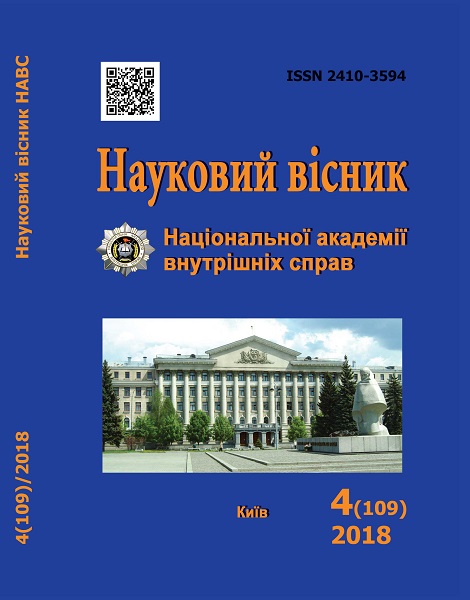Analysis of International Documents in the Field of Financial Monitoring and their Characteristics
Abstract
The system of combating money laundering, terrorist financing and financing of the proliferation of weapons of mass destruction is based on the requirements of the basic international instruments in this area, which were formed and improved in connection with irreversible processes of evolution of financial systems and crime. The purpose of this article is to analyze international documents, which form the basis of the national system of financial monitoring, their characteristics, as well as description of approaches, key principles and rules for assessing compliance with international standards in the area of prevention and counteraction. It has been established that combating money laundering as a crime that has a fairly long history is perhaps the main focus of international cooperation in the fight against crime. It has been determined that internationally, the legal basis for financial monitoring is FATF documents, the UN Convention and the Council of Europe, UN Security Council Resolutions, a number of EU Directives and other international instruments. It is emphasized that the FATF Recommendations are a modern comprehensive source on the basis of which financial monitoring systems are operating and are being developed in all countries of the world. It is proved that the FATF Recommendations Assessment Methodology and related documents are fundamental in the context of the global assessment of the implementation level of the Recommendations (from the technical point of view and in view of the effectiveness of the processes). Ukraine, as a Member State of the MONEYVAL Committee (the FATF Observer Committee), also indirectly participates in the development of draft documents adopted by the FATF. It has been emphasized that the initiative to develop any new global document (or amendments to it) will be provided on condition that it will improve the existing anti-money laundering/terrorist financing procedures and will make financial systems more transparent.
Downloads
Abstract views: 151 PDF Downloads: 174
- Authors reserve the right to authorship of their own work and transfer to the magazine the right of the first publication of this work under the terms of the Creative Commons Attribution License, which allows other persons to freely distribute published work with mandatory reference to authors of the original work and the first publication of an article in this magazine.
- Authors have the right to enter into separate additional agreements on non-exclusive dissemination of the work in the form in which it was published in the journal (for example, to post an article in the institution's repository or to publish as part of a monograph), provided that the link to the first publication of the work in this journal is maintained.
- The journal's policy allows and encourages the posting of articles by authors on the Internet (for example, in electronic storehouses of institutions or on personal websites), both before the submission of this manuscript to the editorial office and during its editorial processing, as this contributes to the creation of a productive scientific discussion and positively affects the efficiency and dynamics of citing the published work.




